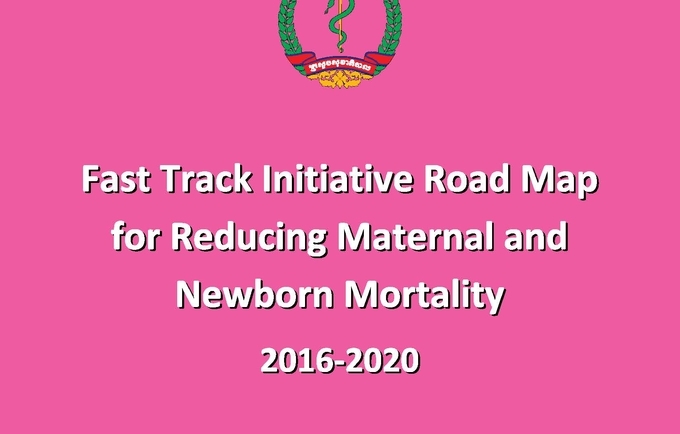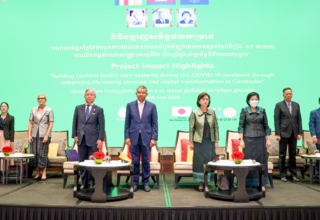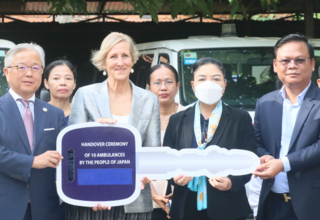In the last decades, maternal mortality ratio in Cambodia has been reduced by two-thirds, from 472 to 170 per 100,000 live births.
For the country, this achievement for the Millennium Development Goals (MDGs) sets a more ambitious expectation for her to better her performance for the Sustainable Development Agenda.

The Ministry of Health in cooperation with key development partners is organizing a series of consultative meetings to develop the Fast Track Initiative Roadmap for Reducing Maternal and Newborn Mortality 2016-2020 and the Emergency Obstetric and Newborn Care Improvement Plan 2016-2020. The plans set priorities in increasing the quality and coverage of family planning, emergency obstetric and newborn care and safe abortion care, and improving individual, family and community care practices.
The two initiatives will be used as guiding tool to achieve the global Sustainable Development Goals (SDGs) by 2030 in improving the health and well-being of women and newborns.
The plans were officially launched on 1 August, followed by a two-day workshop with the provincial health officials and key development partners and stakeholders
“Cambodia is one among a few countries around the world of having achieved the MDGs by 2015. The country is proactive in addressing the quality of training, strengthening midwifery regulation, improving good working conditions and ensuring adequate workforce policies for professional growth,” says the UNFPA Representative Dr. Derveeuw Marc, representing development partners during the launching event.
The Minister for Health, H.E. Mam Bunheng emphasizes that strengthening staff and financial capacity is the key priorities to make the plans reality. While the government is committed to achieving the SDGs by 2030, the Ministry recognizes barriers lie ahead that could distract women and babies from accessing quality health care.
“By having these plans as guiding tool, the country will be in a better capacity to deal with complicated maternity, abortion and teenage pregnancy. We will have more professional staff and trained midwives to provide quality maternal and child care to women and newborns” reiterates the minister.

Ways forward:
Participants stressed that by 2020, at least 50% of the total health centers will have to recruit and deploy two secondary midwives and increase the number of days on duty to more than 10 days.
The incentive for staff and improvement and upgrade of at least 160 functioning health facilities that can provide emergency obstetric and newborn care by 2020 are key elements of quality improvement of health services in the country.
The focus is also placed on capacity building of health professionals in all levels in using high-technology facilities and equipment when dealing with complicated birth delivery.





